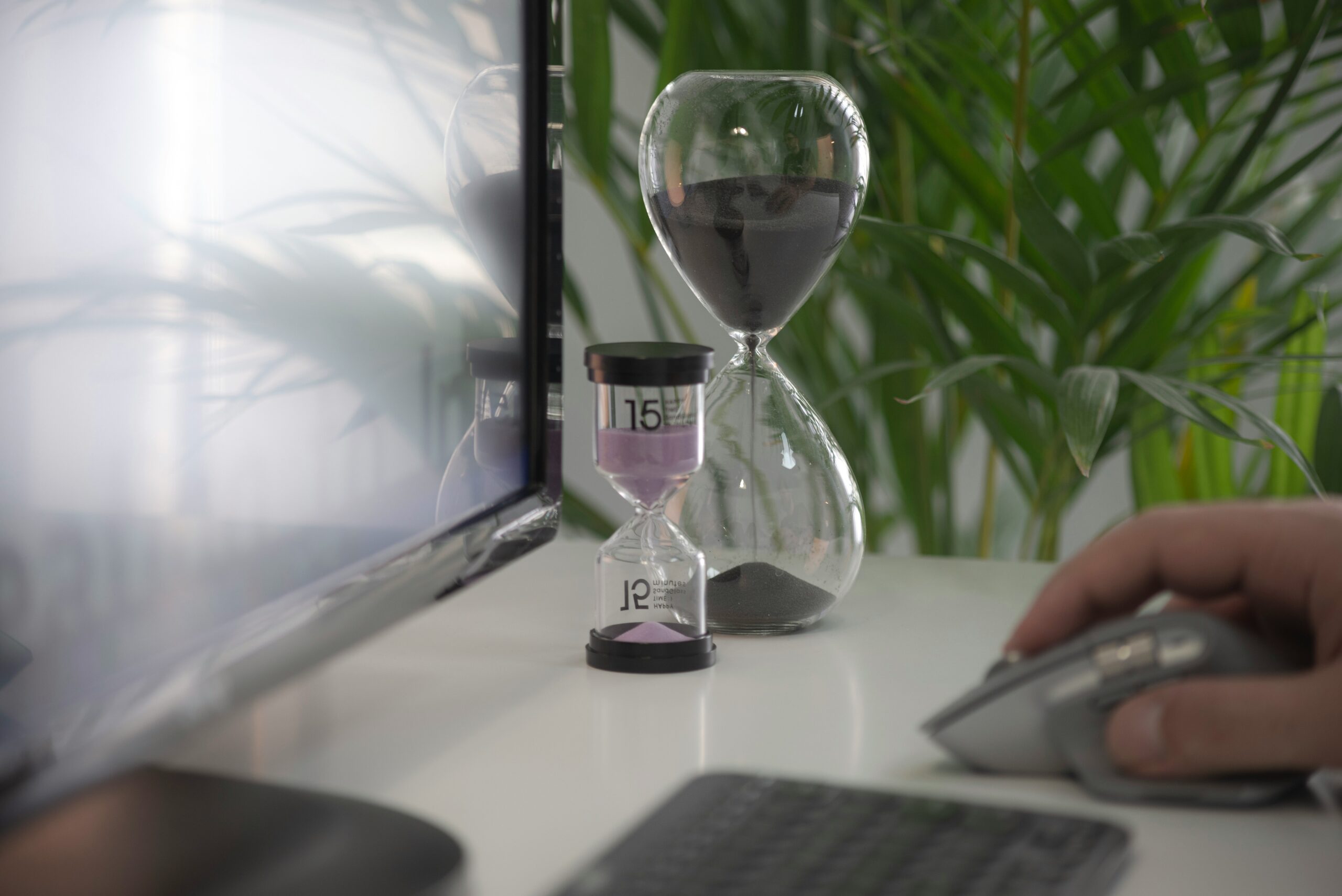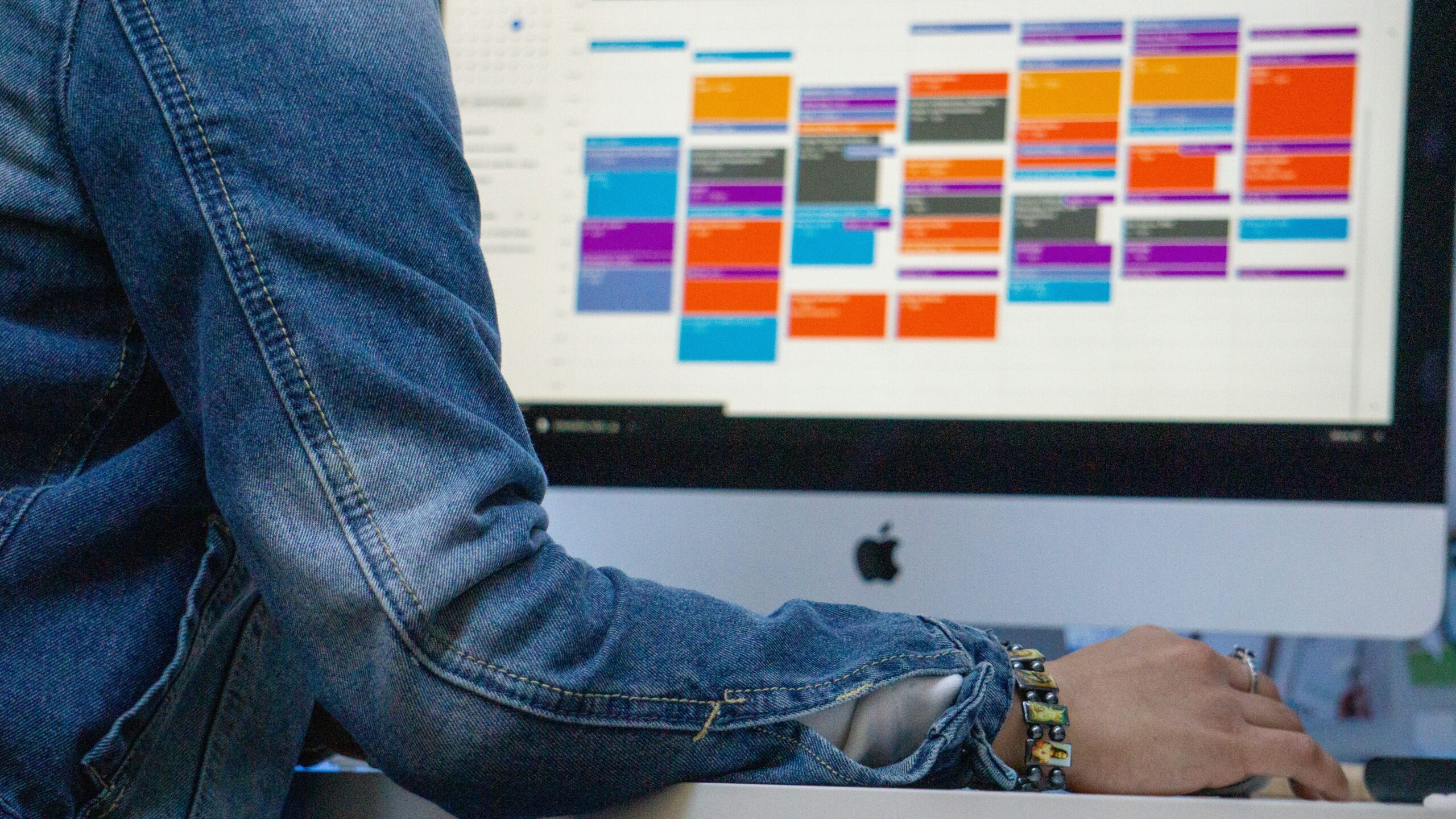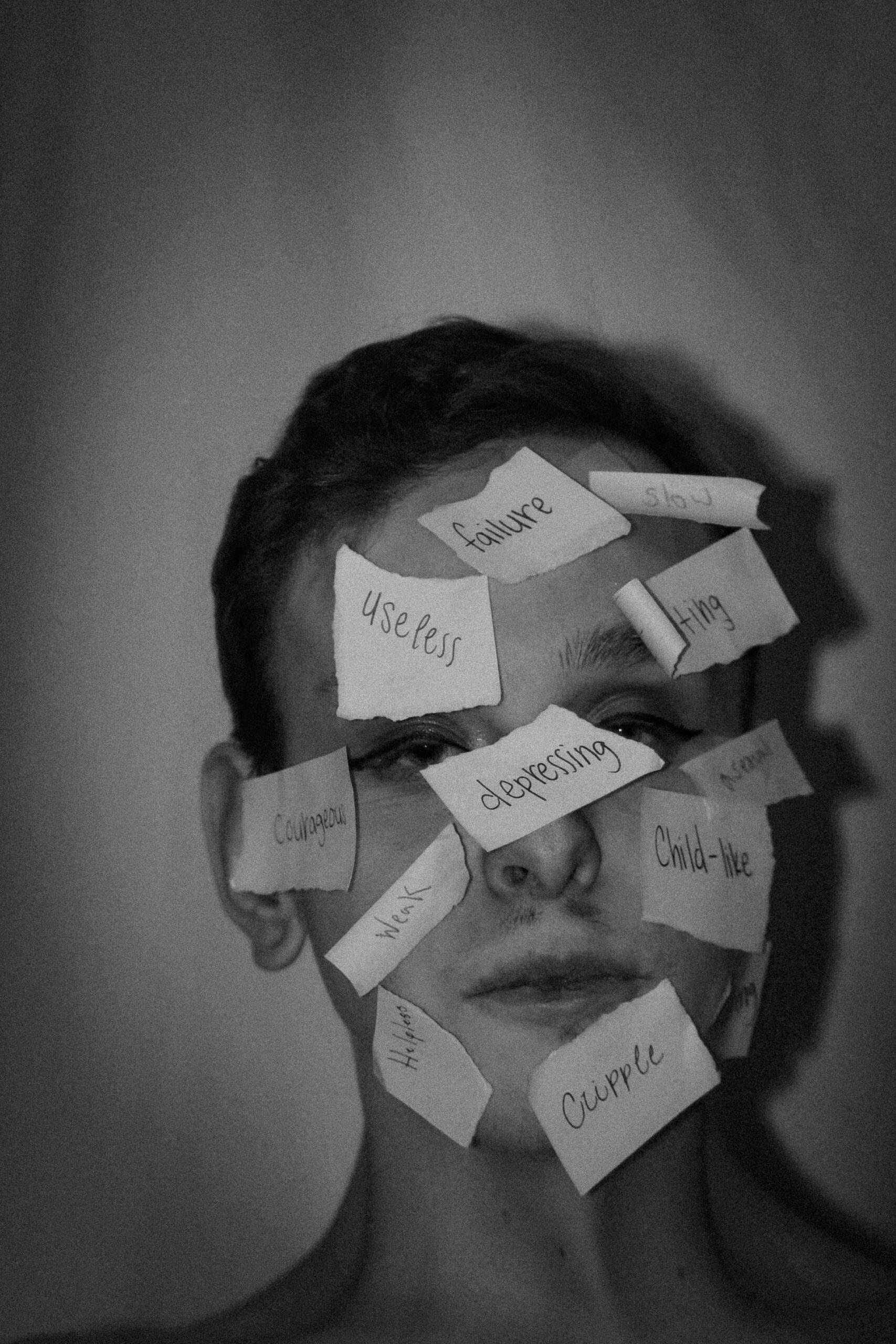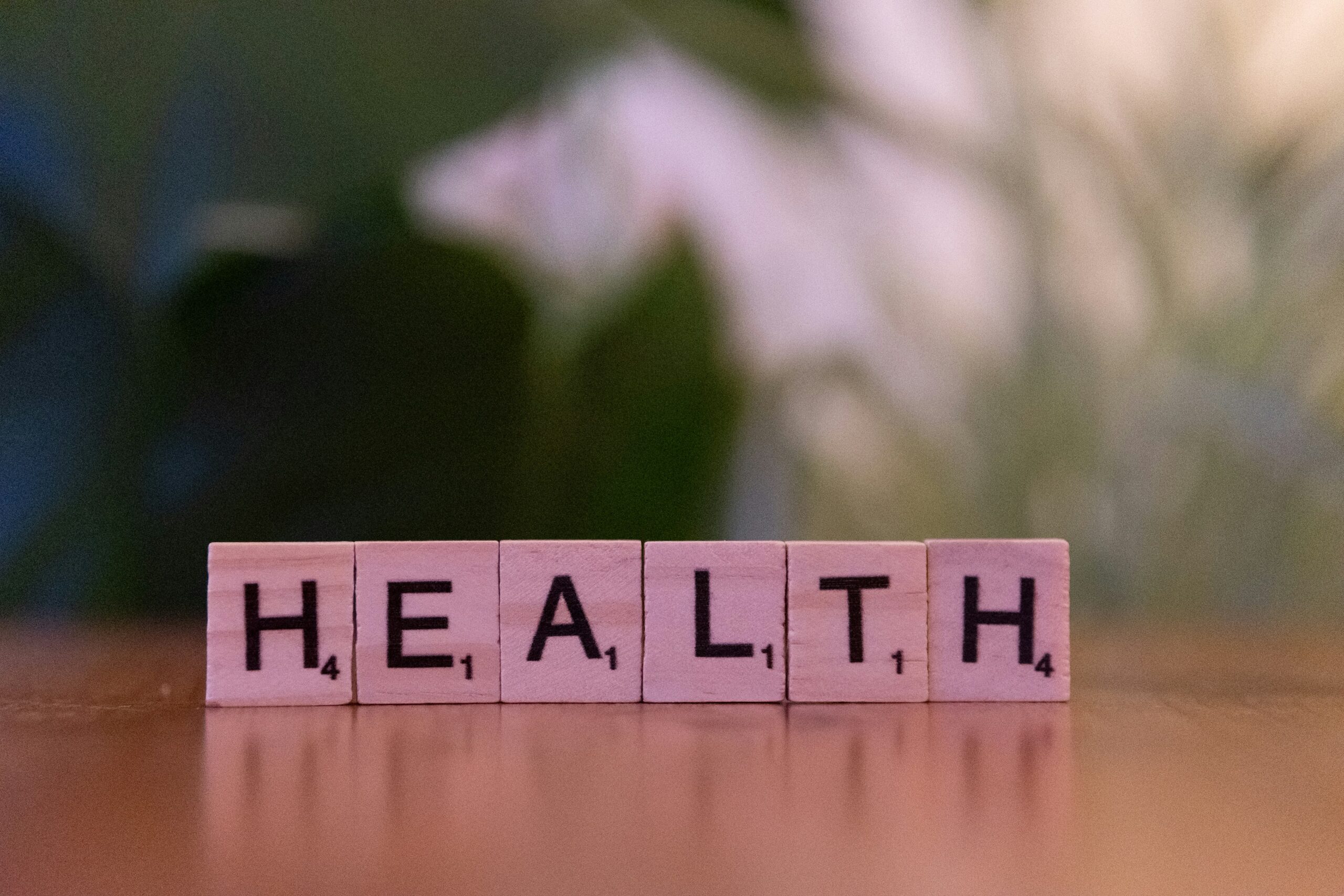The go to blog for ambitious professionals, who want to create sustainable career success despite chronic illness.
The 'Tired but Wired' Blog
Read this post →
Chronic Illness and Productivity Were Never Meant to Be a Perfect Match
If you’ve ever stared at your overflowing to-do list thinking, how am I supposed to tackle this when I can barely think straight?, you’re not alone. Chronic illness and productivity can feel like they’re constantly at odds: one demanding consistency, the other delivering unpredictability.
The truth is, most productivity systems weren’t designed for bodies or brains that run on fluctuating power. But here’s the good news: that disconnect isn’t a personal failure. It’s a sign that it’s time to stop forcing a fit and start building a new, better one.
This post is your permission slip to rewrite the rules. Because you deserve a work life that works for you, not one that quietly breaks you down.
💡 Want to start making changes today? Grab your free guide: 5 Powerful Strategies to Reduce Fatigue at Work
1. The 9-to-5 Grind Doesn’t Work for Chronic Illness (And Never Really Did)
Conventional work hours assume a predictable baseline of energy and focus, something that chronic illness simply doesn’t guarantee. But that doesn’t make you less capable. It just means the system was never set up with your reality in mind.
What to try instead:
Work with your natural energy windows, not arbitrary time slots. Track your personal highs and lows, and plan around them. This isn’t laziness, it’s intelligent adaptation.
2. Hustle Culture Rewards Burnout, Not Brilliance
You’ve probably been told that “pushing through” shows grit. But for those managing chronic illness, pushing through can lead to serious setbacks. What if protecting your energy was actually the smarter, more sustainable strategy?
What to try instead:
Use a “minimum effective effort” mindset: what’s the smallest action that gets you closer to your goal? Then celebrate that. Small, consistent steps > heroic burnout cycles.
3. Chronic Illness and Productivity Fluctuate Together… That’s Not a Problem, It’s a Pattern
Your energy isn’t the same every day, and your productivity shouldn’t be either. Treating every fluctuation as a red flag misses the point. This variability isn’t a weakness. It’s insight.
What to try instead:
Add flexibility buffers into your calendar. Build in time to reset after mentally or physically intense work. You’ll feel more in control, and less like you’re constantly catching up.
Need more proof? This download from the ME Association backs the importance of pacing and rest for managing long-term health.
4. You Don’t Need to Earn Rest, You Need to Honour It
When you live with chronic illness, waiting until you’ve “earned” rest can be a one-way ticket to burnout. Rest isn’t a luxury or a reward. It’s maintenance.
What to try instead:
Book your rest before you book your work. Even 10-minute breathers between calls can prevent the cumulative fatigue that tanks your whole day.
5. Redefining Success Can Set You Free
What if success wasn’t about keeping up? What if it was about creating work that fits you, your body, your pace, your values? That’s not lowering the bar. That’s raising it to a healthier height.
What to try instead:
Define your own version of success: maybe it’s one focused hour a day, or setting boundaries around your availability. Let go of the performative productivity and come home to what actually matters.
Final Thoughts: Rewriting the Rules is the Real Productivity Hack
If you’ve felt stuck, frustrated or like you’re quietly failing at a game you never chose to play, this is your reminder: you’re not the problem. The model is.
Chronic illness and productivity can co-exist, but only when we stop trying to force ourselves into outdated expectations.
Disclaimer:
The content in this blog is based on my personal experience of living with chronic illness and is shared for informational purposes only. It is not intended as a substitute for professional medical advice, diagnosis, or treatment. Always consult with your GP or healthcare professional before making any changes to your lifestyle, work routine, or health management. The tips and strategies shared here can be used alongside medical advice to support your well-being.

Read this post →
You’ve got your calendar set up. Meetings blocked, breaks pencilled in, tasks neatly tucked between Zoom calls. On paper, it looks manageable. Sensible, even. But by 2pm, you’re fried. Not “just a bit tired”, we’re talking foggy-brained, limbs-heavy, please-don’t-ask-me-one-more-thing kind of tired. If this sounds familiar, it’s not because you’re lazy, disorganised or bad at time management. It’s because your calendar is lying to you. Well, not intentionally. But it’s only showing part of the story, the time cost. It’s missing the invisible energy cost. And that’s where the real trouble starts.
What the Invisible Energy Cost Really Looks Like
Let’s say your calendar shows a 30-minute team check-in at 9am, followed by “quick admin” at 9:30, then a feedback review at 10. Looks fine, right?
But here’s what it doesn’t show:
- The emotional load of leading that team check-in
- The mental gymnastics of switching context for admin
- The cognitive effort of giving thoughtful feedback
Time-wise? Easy.
Energy-wise? Compounding fatigue.
One task might be short, but it might take a heavy toll. And stacking those tasks back-to-back, even when your calendar says there’s technically space, can leave you totally wiped.
The Cost of ‘Just One More Thing’
How often do you squeeze in an extra task, thinking “I’ll just get it done now to save myself time later”?
Spoiler: that “just one more thing” might be exactly what tips you into burnout territory. Because it’s not just a time issue, it’s a recovery issue.
If you keep pushing through without understanding the energetic weight of what you’re doing, you’re effectively borrowing against tomorrow’s capacity. And the interest rate is brutal.
3 Signs You’re Underestimating Energy Drain
- You’re always surprised by how exhausted you feel, even when the day looked light.
- You struggle to switch off at the end of the day, even when the to-do list is technically done.
- You’re avoiding certain types of tasks because they just feel heavier, even if they’re small.
Sound familiar? You’re not alone. This is one of the most common patterns I see with clients, especially those managing chronic health conditions or fatigue.
A Better Way: Plan for Energy, Not Just Time
This is where energy planning changes the game. Instead of asking, “Do I have time for this?”, try asking:
- “What kind of energy does this task require?”
- “What kind of energy do I have right now?”
- “How long will it take me to recover from this?”
Shifting to an energy-first mindset doesn’t mean doing less, it means doing smarter.
And yes, it might mean leaving a few white spaces in your calendar, not to be filled in later but held as recovery zones, space to reset your system, mentally and physically.
From Calendar Chaos to Capacity Clarity
Inside my 1:1 coaching programme, one of the first tools I share is your Energy Prioritisation Plan, a simple but powerful way to map out your work based on how much energy you have, not just how much time you’ve got.
It’s not about giving up on your goals. It’s about reaching them in a way that doesn’t cost your health.
If you’re not quite ready for coaching but you’re starting to rethink your day-to-day energy leaks, grab my free guide:
👉 5 Powerful Strategies to Reduce Fatigue at Work
For further reading on how your mental health and workplace energy are linked, check out this helpful guide from Mind UK: Taking Care of Yourself at Work
Disclaimer:
The content in this blog is based on my personal experience of living with chronic illness and is shared for informational purposes only. It is not intended as a substitute for professional medical advice, diagnosis, or treatment. Always consult with your GP or healthcare professional before making any changes to your lifestyle, work routine, or health management. The tips and strategies shared here can be used alongside medical advice to support your well-being.

Read this post →
We’ve all been sold the dream: hustle harder, manage your time better, and eventually, you’ll “make it.”
But if you’re living with a chronic illness, or even just a nervous system that says no thanks to relentless pressure, this version of success can leave you burnt out and barely functioning.
That’s where energy awareness and sustainable success come in. When you start making decisions based on your energy levels, not just your availability, you unlock a more honest, health-conscious way of working. One that honours your capacity and your ambition.
What Is Energy Awareness, Really?
Energy awareness is the skill of noticing your energy levels throughout the day and adjusting your behaviour accordingly.
It’s not just about taking breaks or doing yoga (although both can help). It’s about understanding your personal rhythms and knowing:
- What activities drain you vs. replenish you
- When your energy peaks and dips
- Which types of work feel worth the energy they cost
This is especially crucial if you’re managing symptoms like fatigue, brain fog or pain. Traditional time management tells you to block hours on a calendar. But energy-aware working asks: can I actually do this task, right now, in a way that won’t flatten me later?
The Power of Energy Awareness and Sustainable Success
Let’s be honest: productivity culture rewards people who ignore their bodies. But that doesn’t work if your body is already shouting at you.
Energy awareness and sustainable success go hand in hand. You can’t build a thriving, fulfilling career by constantly borrowing energy you don’t have.
When you make decisions based on energy (not guilt, deadlines or other people’s expectations) you:
- Get more done in less time
- Protect your mental and physical health
- Make room for creativity and clarity to flourish
This shift in mindset doesn’t make you weak, it makes you strategic.
For a grounded perspective on energy and workplace wellbeing, Mind UK offers excellent resources on mental health at work and energy management.
The Real Cost of Ignoring Your Energy Limits
When you override your body’s signals for long enough, the price shows up as:
- Constant fatigue, even after rest
- Brain fog during key meetings
- Irritability and mood crashes
- A creeping resentment for a job you once enjoyed
This is what I call the energy debt cycle, where you spend more than you have, and then pay it back with interest (usually in the form of sick days, guilt, or a full-on crash).
If this sounds familiar, you’re not alone, and you’re not broken. You’ve just been taught to manage time, not energy.
3 Practical Shifts to Start Working With Your Energy (Not Against It)
1. Track Your Energy, Not Just Your Tasks
Try a simple energy audit: for 3 days, jot down your energy levels (1–5) at key times: morning, midday, afternoon, evening. Note what you were doing at the time.
Patterns will emerge. And those patterns? They’re gold dust.
➡️ Want a done-for-you version? Grab my free guide: 5 Powerful Strategies to Reduce Fatigue at Work
2. Plan Your Work Around Your Peaks
If you notice your energy spikes at 10am, protect that slot like a dragon guarding treasure. Use it for the work that matters most: strategy, writing, problem-solving.
Save admin, inbox-clearing and low-energy tasks for your dips.
This one shift can save you hours of wasted effort.
3. Learn to Pause Before the Crash
This one’s hard if you’ve spent years pushing through. But learning to pause before the overwhelm hits is a radical act of self-leadership.
Try a 3-minute rule: when you feel that energy dip coming on, take a break before you think you “deserve” it.
You don’t need to earn rest, you need to honour your bandwidth.
This Isn’t Laziness. It’s Leadership.
Rebuilding your relationship with energy isn’t just about preventing burnout.
It’s about leading your work, and your life, with intention.
Energy awareness and sustainable success isn’t a fluffy wellness concept, it’s a business-critical strategy. Especially if you’re living with chronic illness, this approach helps you lead and deliver without the cost being your health.
You don’t have to burn out to prove your value. Your energy is not a problem to be solved, it’s a compass to follow.
Further Reading
- Mind UK: Tips for workplace mental health
- The Spoon Theory – A Helpful Analogy for Chronic Illness and Energy Management
Disclaimer:
The content in this blog is based on my personal experience of living with chronic illness and is shared for informational purposes only. It is not intended as a substitute for professional medical advice, diagnosis, or treatment. Always consult with your GP or healthcare professional before making any changes to your lifestyle, work routine, or health management. The tips and strategies shared here can be used alongside medical advice to support your well-being.

Read this post →
Let’s Talk About the Lie We’ve Been Sold About Success
You know the one. Hustle harder. Sleep when you’re dead. Keep pushing through, no matter what. For most people, this message is exhausting. But if you’re living with a chronic illness? It’s not just exhausting, it’s dangerous.
And yet, you still want more. Not in the capitalist, 60-hour week kind of way, but more meaning, more contribution, more fulfilment. That’s not selfish. It’s human. You’re allowed to be ambitious and unwell. The problem is, you’ve been taught to chase someone else’s version of success that doesn’t fit your reality.
It’s time to redefine what sustainable success with chronic illness actually looks like and why it’s not only possible, but powerful.
What Does Sustainable Success Really Mean?
Sustainable success with chronic illness isn’t about settling or playing small. It’s about choosing goals, systems and rhythms that fuel your ambition without draining your body.
It’s when:
- You build a career or business that works with your energy, not against it.
- You define productivity based on impact, not hours.
- You say yes to growth that fits inside your bandwidth.
- You rest without guilt because it’s part of the plan, not a reward.
It’s not small. It’s smart. It’s success that you can keep showing up for.
Real Examples of Sustainable Success with Chronic Illness
Here are some subtle (but powerful) ways people have redefined their careers and businesses for the better:
1. From Big Launches to Consistent Income
Instead of pushing for adrenaline-fuelled product launches that led to week-long crashes, one business owner moved to evergreen offers and monthly retainers. Same income goal, just delivered in a way her body could keep up with.
2. From Promotions to Portfolio Careers
One former marketing exec restructured her work into a mix of part-time consulting and mentoring, still impactful, still strategic, but with breathing room for flares and fatigue.
3. From Full-Time to Fulfilment-Focused
A teacher with MS reduced her hours to three days a week and used her remaining energy to create a resource bank for others with similar conditions. She didn’t scale down, she scaled better.
Each of them moved toward sustainable success with chronic illness by ditching other people’s definitions and building lives that work for them.
Your 4-Step Framework for Sustainable Success
Want to begin redefining your own version of success? Start with these:
Step 1: Challenge Your Definition
Ask yourself: Whose version of success am I aiming for? Society’s? A younger, healthier version of me? Someone who doesn’t need to ration their spoons?
Step 2: Reconnect to Your Values
What really matters to you, freedom, purpose, security, flexibility? Your values should shape your goals, not the other way around.
Step 3: Align Your Energy and Ambition
You can still aim high. But your delivery model needs to match your body’s capacity. If you need help with this, grab my free guide: 5 Powerful Strategies to Reduce Fatigue at Work.
Step 4: Prioritise Rest Like a CEO
Rest isn’t laziness. It’s leadership. When you plan for rest the same way you plan your meetings, you protect your ability to keep showing up.
For a medically grounded overview of how to manage chronic fatigue day-to-day, check out this NHS guide to managing fatigue, it covers both medical and lifestyle approaches that support the strategies I share here.
Why This Matters (And What to Do Next)
You don’t have to choose between ambition and well-being. You can still grow, build and thrive, without burning yourself out.
The key to sustainable success with chronic illness is alignment: aligning your work with your values, your goals with your energy, and your definition of success with what actually matters to you.
If you’re ready to move from “just getting by” to a more energised, purpose-filled way of working, my 1:1 coaching can help. I work with professionals living with chronic illness to create personalised, values-led strategies for success that honour your health and your goals.
➡️ Learn more about coaching or book a discovery call here
Disclaimer:
The content in this blog is based on my personal experience of living with chronic illness and is shared for informational purposes only. It is not intended as a substitute for professional medical advice, diagnosis, or treatment. Always consult with your GP or healthcare professional before making any changes to your lifestyle, work routine, or health management. The tips and strategies shared here can be used alongside medical advice to support your well-being.

Read this post →
Let me guess, you’ve caught yourself saying:
- “I can rest when I finish this deadline.”
- Or, “I’ll slow down after the launch.”
- Or the classic: “Rest is for the weekend.”
Sound familiar?
If you live with a chronic illness, this mindset isn’t just exhausting, it’s unsustainable. And it’s probably one of the last things your body needs. But here’s the kicker: even those of us who know better still fall into this trap. We’ve been trained to tie rest to productivity, as if we need to earn permission to stop.
So today, we’re flipping that script. Because rest without guilt isn’t indulgent, it’s strategic. And when you get it right, it becomes one of your most powerful tools for doing meaningful work without burning out.
1. The ‘Earned Rest’ Mindset: Where Did We Even Get This From?
Let’s be real: the idea that rest must be earned is rooted in hustle culture. We’re taught to glorify exhaustion, idolise overwork, and shame ourselves for needing downtime. This toxic pattern shows up everywhere, from our workplaces to our social media feeds.
For professionals managing chronic illness, this mindset isn’t just outdated, it’s dangerous. When you feel you have to “justify” every break, you’re far more likely to push through warning signs and trigger flares, crashes or relapses. And then what? You’re forced to rest but this time, it’s reactive, not restorative.
2. Rest Isn’t Lazy, It’s Leadership
Imagine if we treated rest as part of the strategy, not the reward.
Because the truth is, rest without guilt sharpens your thinking, improves your mood, and helps you show up better, for your clients, your colleagues, and most importantly, yourself.
💡 In fact, the NHS highlights how rest is vital for managing stress, improving mood, and supporting overall mental wellbeing. Regular restorative breaks protect both cognitive and emotional health, something that’s especially crucial when chronic illness is part of your daily reality.
So no, resting isn’t lazy. It’s leadership. Especially when you’re building a sustainable, values-aligned career with limited energy reserves.
3. Spot the Shame Triggers (And Call Them Out)
Here’s something I see all the time in my community:
You take a break… but spend the entire time feeling guilty about it.
That kind of “rest” isn’t rest at all. It’s shame in a different outfit.
Instead of defaulting to guilt, try asking yourself:
- Would I shame a friend for taking this break?
- Am I resting to recover… or avoiding rest because I think I haven’t ‘earned’ it yet?
Notice the internal narratives that sneak in, and interrupt them with truth.
4. Simple Ways to Practise Rest Without Guilt
You don’t have to overhaul your entire schedule to rest well. Sometimes it’s the tiny, regular pauses that make the biggest difference. Here’s where to start:
- Bookend your day with intentional recovery Even five minutes of quiet breathing, journaling or stretching helps create a boundary between ‘on’ and ‘off’.
- Use the 90-minute energy rhythm Research shows our brains naturally work in 90-minute bursts. After each block, pause… Yes, even if you’re ‘on a roll’.
- Try a ‘non-negotiable break’ mindset Treat rest like a meeting you wouldn’t cancel. It deserves the same respect.
Want more practical strategies to reduce fatigue at work?
👉 Grab my free guide: 5 Powerful Strategies to Reduce Fatigue at Work
5. Redefine Rest as a Tool for Growth
Rest doesn’t mean stepping away from your ambition. It means showing up for it differently.
What if your rest time is when your next big idea brews quietly in the background? What if slowing down was what helped you finally get the clarity or momentum you’ve been missing?
Instead of using rest as a reward, use it as a resource, one that fuels your sustainability, creativity and capacity.
Ready to Work Smarter (Not Sicker)?
If this post hit home, it’s because you already know the old rules don’t work anymore. You’re not lazy. You’re strategic. And you deserve a work rhythm that honours your body and your brilliance.
✨ That’s exactly what we focus on in my 1:1 coaching.
I help ambitious professionals living with chronic illness shift away from burnout-prone habits and build careers that support both their health and their goals. Whether you’re navigating workplace expectations, energy crashes or the never-ending pressure to prove yourself, I’ll help you carve out a path that works for you, not against you.
Together, we’ll:
- Unpick the patterns that drain your energy and self-worth
- Create work systems that match your real capacity (not the one you wish you had)
- Rebuild your professional confidence without sacrificing your wellbeing
👉 Find out more about coaching with me
Want more like this?
Sign up to my newsletter for honest, practical strategies on working with chronic illness, without losing your drive or your mind. It’s like a pep talk and a productivity tip sheet, rolled into one.
Disclaimer:
The content in this blog is based on my personal experience of living with chronic illness and is shared for informational purposes only. It is not intended as a substitute for professional medical advice, diagnosis, or treatment. Always consult with your GP or healthcare professional before making any changes to your lifestyle, work routine, or health management. The tips and strategies shared here can be used alongside medical advice to support your well-being.

Read this post →
Are You Working to Prove Your Worth?
You know the feeling: the workday ends, but your mind doesn’t. You’ve ticked off tasks, pushed through pain, and still feel like you haven’t done “enough.” If you’re a professional living with chronic illness, this relentless drive isn’t just about productivity. It’s often rooted in something deeper.
The link between overwhelm and identity is powerful. When your sense of self-worth becomes entangled with how much you do, you start working to prove your value rather than to preserve your wellbeing. That’s when the real exhaustion begins.
Let’s unpack where this comes from and how to begin loosening its grip.
1. How Overwork Becomes a Measure of Self-Worth
When you live with limited energy, it’s easy to feel like you have something to prove. You might work harder, longer, or say yes to more than you can realistically manage. Not because you want to, but because you’re afraid not to.
You might catch yourself thinking:
- “If I over-deliver, no one will question my commitment.”
- “If I say no, they’ll think I’m unreliable.”
- “If I rest, they’ll think I’m lazy.”
But these thoughts don’t come from nowhere. They’re often shaped by the deeper link between overwhelm and identity, where doing more becomes a way to feel enough.
2. Internalised Ableism and Perfectionism: A Hidden Burnout Trap
One of the hardest things to spot is how deeply we internalise the belief that we must keep up. When rest is framed as weakness and adjustments feel like failure, it becomes nearly impossible to work in a way that honours your body.
This is internalised ableism in action, and it shows up in all kinds of sneaky ways:
- Feeling guilty for using accommodations
- Masking pain or fatigue to appear “professional”
- Overcompensating to avoid judgement or exclusion
This internal pressure often pairs with perfectionism, creating a cycle of over-functioning and eventual burnout.
📰 Related reading: One person’s experience of working with internalised ableism.
3. Redefining Value Without the Hustle
Here’s the truth: your value isn’t earned through exhaustion.
The moment you begin separating your identity from your output, you take back control. That doesn’t mean lowering your standards. It means changing the measure of success. Ask yourself:
- Is this task aligned with my values?
- Will this choice support my energy?
- Am I acting from self-worth or seeking validation?
This is where real, sustainable change begins. This is where the link between overwhelm and identity starts to loosen.
If you’re struggling with burnout or overwhelm, Mind’s resource on work-related stress offers further insight into the emotional toll of chronic pressure, especially when it stems from internalised expectations.
4. A New Definition of Success That Includes You
Imagine a version of success that doesn’t ask you to sacrifice your health. A version where your identity is grounded in who you are, not what you produce. It might sound radical, but it’s entirely possible.
The first step is redefining what “enough” looks like in your own terms. Not in comparison to colleagues. Not by what your productivity app says. But by how aligned your work feels with your needs, capacity and values.
That redefinition is an act of courage and self-trust.
5. Ready for the Next Step? Awareness Is the Beginning
Understanding the link between overwhelm and identity is more than just an “aha” moment. It’s a call to reconnect with the version of you who isn’t constantly proving, pushing or performing.
And you don’t have to do it alone.
Before You Go: Build a Foundation for Sustainable Energy
If you’re not ready for the deeper identity work just yet, start by protecting your energy. My most downloaded free guide offers practical, evidence-based shifts to reduce fatigue at work without sacrificing your impact.
Want More Gentle Strategy and Support?
Each week, I send out a short, thoughtful email designed to help you thrive with chronic illness, at work and beyond.
💌 Join the newsletter for tools, reflections and mindset shifts that help you grow without burning out.
Disclaimer:
The content in this blog is based on my personal experience of living with chronic illness and is shared for informational purposes only. It is not intended as a substitute for professional medical advice, diagnosis, or treatment. Always consult with your GP or healthcare professional before making any changes to your lifestyle, work routine, or health management. The tips and strategies shared here can be used alongside medical advice to support your well-being.

Read this post →
When you’re living with a chronic illness, managing your workday often feels like balancing on a tightrope. Every task demands energy, but you’re working with a limited supply and once it’s gone, recovery isn’t as simple as “a good night’s sleep.”
That’s why doing an energy audit is a game-changer.
Just like a financial audit shows where your money is going, an energy audit helps you track where your precious energy is being spent, drained, or (hopefully!) replenished. It’s the first step in working smarter, not harder, while safeguarding your health.
If you’ve ever found yourself saying:
- “Why am I so exhausted after meetings?”
- “I’m busy all day but get nothing meaningful done.”
- “I don’t even know what to change to feel better.”
…then this post is for you.
What is an Energy Audit (And Why You Need One)?
An energy audit is a reflective exercise where you identify which activities in your workday:
- Drain your energy
- Replenish your energy
- Or leave you feeling neutral
It’s not about blaming yourself for being tired. It’s about building awareness, so you can make small, strategic changes that protect your health while staying productive.
Think of it as your personal guide to working smarter, not harder.
Helpful Resource: The ME Associations guide to pacing, explains how managing your energy levels through structured planning can support those with fatigue-related conditions.
How to Start Your Energy Audit in 3 Simple Steps
1. Track Your Workday (With Energy in Mind)
For 3-5 days, keep a simple log of your activities. After each task or meeting, rate your energy level:
- Energised (+)
- Neutral (0)
- Drained (-)
This can be a quick note in your phone or planner. The goal isn’t perfection, it’s awareness.
2. Spot the Patterns
At the end of your tracking period, look for trends:
- Which tasks consistently drain you?
- Are certain times of day worse?
- What activities give you a surprising energy boost?
Even small insights, like noticing that video calls are more draining than emails, can shape smarter work habits.
3. Take One Actionable Step
Choose one energy-draining habit to adjust. For example:
- Swap back-to-back meetings for focus blocks
- Batch admin tasks to avoid constant context switching
- Build in 5-minute rest breaks after draining activities
Small tweaks, done consistently, lead to big results over time.
Want more practical strategies? Download my free guide: 5 Powerful Strategies to Reduce Fatigue at Work to discover how simple changes can protect your energy.
Reclaim Your Energy and Redefine Success
An energy audit isn’t just a task, it’s a mindset shift. It’s the first step toward creating a work-life that honours both your ambition and your well-being.
If this resonates with you, you’ll love The Sunday Power-Up, my weekly newsletter filled with tips for balancing career success with chronic illness. Subscribe here for your weekly energy boost.
Disclaimer:
The content in this blog is based on my personal experience of living with chronic illness and is shared for informational purposes only. It is not intended as a substitute for professional medical advice, diagnosis, or treatment. Always consult with your GP or healthcare professional before making any changes to your lifestyle, work routine, or health management. The tips and strategies shared here can be used alongside medical advice to support your well-being.

Read this post →
You’re getting eight hours of sleep (on a good night), cutting back on caffeine, maybe even squeezing in a lunchtime walk… so why are you still completely wiped by mid-afternoon? The truth is, chronic tiredness at work often isn’t about how much we’re doing, but how we’re doing it. Energy leaks at work, those small, hidden actions and habits that go unnoticed, are often the biggest drain on your stamina. And for professionals managing chronic illness or fatigue, those leaks can add up fast.
Let’s take a closer look at where your energy might be slipping away, and how to stop the drain before it turns into burnout.
1. Constant Context Switching: The Overlooked Energy Leaks at Work
The drain: Jumping between emails, meetings, Slack messages and tasks might feel productive, but it comes at a huge cost to your energy. Each switch forces your brain to reset, which is especially exhausting when you’re managing cognitive or physical fatigue.
Try this instead:
Batch similar tasks together. Start your day with 30 minutes just for emails, then block time for one priority task. Use tools like Notion or a basic timer app to maintain focus. Protect your mental transitions like you would a physical break.
2. Overcommitting (Even in Small Ways)
The drain: Taking on extra tasks or squeezing in “just one more thing” chips away at your energy budget. It’s tempting to say yes to everything when you feel like you need to ‘keep up’, especially in workplaces that reward constant output over conscious contribution.
Try this instead:
Pause before committing. Ask yourself: Is this worth the energy? Is it aligned with my values or priorities? One powerful phrase to buy yourself time: “Let me check and get back to you.” It creates space between impulse and decision.
3. Emotionally Masking How You Really Feel
The drain: Pretending to be okay when you’re not, smiling through pain, hiding symptoms, downplaying fatigue is a massive energy leak at work. It’s a silent effort that chips away at your reserves without you even realising it.
Try this instead:
Start small: acknowledge your truth to yourself. Then consider sharing selectively with a trusted colleague or manager. You don’t owe anyone a full explanation, but softening the mask can ease emotional tension and open the door to support.
Need help expressing your needs at work?
👉 Download: 5 Powerful Strategies to Reduce Fatigue at Work
4. Working Through Breaks or Skipping Them Entirely
The drain: Skipping meals, powering through meetings, and ignoring your body’s signals might seem efficient, but it quickly backfires. Your body isn’t designed to run on empty, especially when you’re managing chronic symptoms.
Try this instead:
Set non-negotiable break times. Step away for just five minutes, stretch, breathe deeply, and hydrate. Even a small reset can bring surprising clarity and comfort.
For a simple technique to help you calm your nervous system, try this NHS guide to breathing exercises for stress.
5. Letting Your Inner Critic Run Wild
The drain: That internal voice saying you’re not doing enough? It’s draining you. Constant self-monitoring, guilt, and comparison, especially when you’re working with reduced capacity, turns mental strain into physical exhaustion.
Try this instead:
Practise compassionate self-talk. When the critic shows up, counter it with truth: “I’m still contributing. I deserve rest. My energy is valuable.” Over time, this internal shift builds resilience and self-worth.
Want more reminders like this?
👉 Join The Sunday Power-Up Newsletter for weekly practical tips and uplifting encouragement to manage your energy and mindset.
Final Thoughts: Healing Starts with Awareness
If this list made you nod along or feel a little seen, take it as a sign, your fatigue is valid. And it’s not all in your head.
Energy leaks at work don’t always show up on your to-do list, but they have real consequences. The good news? You can take small, meaningful steps today to plug those leaks and work in a way that protects your health and supports your success.
Disclaimer:
The content in this blog is based on my personal experience of living with chronic illness and is shared for informational purposes only. It is not intended as a substitute for professional medical advice, diagnosis, or treatment. Always consult with your GP or healthcare professional before making any changes to your lifestyle, work routine, or health management. The tips and strategies shared here can be used alongside medical advice to support your well-being.

Read this post →
…(and Vice Versa)
Let’s be honest, if you’ve spent years tying your self-worth to productivity, the idea of slowing down can feel terrifying. Many of us have internalised the belief that success only comes from sacrifice. But when you’re living with chronic illness, burnout, or ongoing fatigue, that belief doesn’t just hold you back, it can derail your entire life. What if I told you that prioritising your health isn’t a detour, it’s the path forward?
In this post, I’ll share how rethinking your work-life dynamic can bring not only better health, but renewed energy, clearer purpose, and even greater career satisfaction.
1. Your Body Isn’t a Barrier to Success, It’s the Guide
For a long time, I saw my body as something to push through. I ignored warning signs, drank the coffee, took the meetings, met the deadlines, even when I could barely get out of bed.
Sound familiar?
Eventually, I realised my symptoms weren’t an inconvenience, they were information. Learning to listen to my body became the most powerful career tool I never knew I needed.
✅ Reframe: Your body isn’t working against you, it’s trying to work with you. Honour its signals and use them to reshape your day in a way that sustains both your energy and your ambitions.
2. Redefine What Productivity Looks Like
The traditional 9–5 model doesn’t work for everyone and that’s okay. Working professionals managing chronic illness often need flexibility over structure, focus blocks over constant availability, and deep work over busywork.
Instead of measuring your worth in hours worked, try asking:
- Did I work on what matters most today?
- Did I make space to rest and refuel?
- Did I make decisions that align with my values?
This shift isn’t laziness, it’s sustainability.
If you’re looking for practical energy-saving strategies you can use right now, download my free guide:
👉 5 Powerful Strategies to Reduce Fatigue at Work
3. Prioritising Your Health Leads to Sustainable Success
Let’s flip the narrative: what if prioritising your health is actually the smartest career move you can make?
When your body is supported, your mind is clearer. When you build your day around your energy, not a rigid schedule, you get more done with less strain. Over time, that leads to better results and better health.
Whether you’re managing CFS/ME, ADHD, chronic pain, or burnout, this mindset shift can change everything.
And if you’re ready to explore how your work and health can support each other long-term, my coaching services are designed to guide you through it. Together, we’ll work out what energises you, what drains you, and how to build a work-life rhythm that actually works for you, not against you.
4. Let Go of the Guilt and Reclaim Your Power
Many of us feel guilty for needing rest or asking for adjustments at work. But here’s the truth:
🧠 Guilt is a sign that your values and your reality are clashing.
If you value integrity, impact, or excellence, you might be pushing through fatigue to try and honour those values. But the cost is too high.
Instead, let’s redefine what success looks like on your terms. Because the most powerful work comes from those who protect their energy and lead with intention, not from those who burn out trying to meet everyone else’s expectations.
If you’re navigating mental load, anxiety, or burnout, resources like NHS Every Mind Matters offer guidance on how to recognise the signs and support your well-being alongside work.
5. Healing and Ambition Can Coexist
This is the heart of it all: You don’t have to choose between getting better and getting ahead.
When you prioritise your health, you actually create the conditions for long-term success, clearer thinking, more consistent performance, and a life outside of work that fuels you.
It’s not about doing less. It’s about doing what matters most.
Ready to Put This Into Action?
If you’re nodding along but wondering how to start making changes without dropping all the balls you’re juggling, I’ve got you.
Start with my free resource,
👉 5 Powerful Strategies to Reduce Fatigue at Work
It’s packed with quick wins you can try today.
And if you want guidance tailored to your situation, my coaching services are built to help you reconnect with what matters, find balance, and build a sustainable approach to your career that respects your energy and health.
You can also get weekly tips, honest insights, and energy-boosting strategies in your inbox every Sunday. Sign up for The Sunday Power-Up newsletter here.
Final Thoughts
Prioritising your health isn’t selfish. It’s not a luxury or a backup plan. It’s the foundation.
You can be ambitious and still honour your limits.
You can build a fulfilling career without burning out.
And you can redefine success in a way that feels good in your body and your soul.
You don’t have to do it alone and you don’t have to do it all at once.
Let’s take the first step together.
Disclaimer:
The content in this blog is based on my personal experience of living with chronic illness and is shared for informational purposes only. It is not intended as a substitute for professional medical advice, diagnosis, or treatment. Always consult with your GP or healthcare professional before making any changes to your lifestyle, work routine, or health management. The tips and strategies shared here can be used alongside medical advice to support your well-being.

Read this post →
Why Redefining Your Work Goals Might Be the Missing Piece in Your Recovery
When you’re living with a chronic illness, it can feel like your body and your career are constantly at odds. You want to succeed, you still have ambition, creativity, and drive, but the way you’ve been taught to work? It’s draining the very energy you need to heal.
I’ve been there. Crawling to the laptop in the mornings, working from bed, pushing through symptoms because I thought that’s what success demanded of me. I wore my productivity like a badge of honour. But the truth? My body was trying to protect me. I just wasn’t listening.
If you’re stuck in that cycle, working harder to feel enough but getting sicker in the process, this post is for you.
Let’s talk about how creating a healthier career might be the most important health decision you ever make.
Why Your Job Could Be Slowing Down Your Recovery
Healing takes more than supplements and symptom trackers. It requires energy… Emotional, mental and physical. And many of us are spending that energy on work environments, habits or expectations that are completely out of sync with what our bodies need.
Here’s how that shows up:
- You recover over the weekend, only to crash by Wednesday.
- You feel like you’re always “behind,” no matter how much you do.
- You say yes to work tasks that leave you exhausted, even though they’re not urgent or important.
- You’re constantly “on”, even outside of working hours.
This isn’t laziness. It’s survival.
And according to Mind UK, long-term stress caused by work demands can have a serious impact on both mental and physical health, particularly for those already managing chronic conditions.
But it doesn’t have to stay this way.
3 Signs You Need to Build a Healthier Career
1. You define success by your output, not your impact
If your self-worth is measured in how many hours you work or how much you produce, you’re likely pushing past your energy limits on a daily basis. Healing becomes secondary to proving your value.
2. You’re afraid to slow down, because you equate rest with falling behind
Let’s get one thing straight: Rest is not the opposite of ambition. It’s the fuel for it. Traditional work culture glorifies burnout and over-delivery. But when you rest strategically, your output becomes more sustainable and effective.
3. You haven’t adjusted your goals to reflect your current capacity
If you’re still trying to meet the same goals you set before your diagnosis, no wonder it feels like an uphill battle. A healthier career means aligning your ambitions with your reality, not with unrealistic expectations.
A Healthier Career Starts With These 3 Mindset Shifts
Want to learn practical ways to reduce fatigue at work? Download my free guide: 5 Powerful Strategies to Reduce Fatigue at Work
1. Your career should support your healing, not compete with it
You can still be successful. You can still have goals. But your health is the foundation, not an afterthought. Start asking: “What does sustainable success look like for me?”
2. Doing less doesn’t mean achieving less
You don’t need to earn rest. You need to design your work so that rest is embedded in it. When you reduce cognitive overload and stop switching between tasks, you get more done with less stress.
3. Aligning your work with your values helps you heal
When your work reflects who you are, you experience less internal conflict and that means less emotional fatigue. Feeling connected to your purpose creates energy. It gives meaning to your day, even if your capacity is limited.
Small Adjustments, Big Results
Making your career work for you doesn’t mean a full-blown career change (unless that’s what you want). Sometimes, it’s as simple as:
- Reducing context switching during the day
- Asking for flexibility in your hours
- Saying no to the extras that drain your energy
- Creating a ‘crash plan’ for flare-ups
- Building a routine around your natural energy peaks
It’s about working smart, not harder.
Ready to Shift Gears?
If this is resonating, you’re not alone and you don’t have to figure it all out by yourself.
I offer 1:1 coaching for professionals who are navigating chronic illness while trying to build a work life that actually works for them. Together, we’ll uncover what matters most to you, identify what’s draining your energy, and start designing a healthier career that aligns with your values, capacity and goals.
✨ Book a free discovery call to see if we’re a good fit.
And if you’re not quite ready for coaching, take the first step by joining my weekly newsletter:
The Sunday Power-Up – Your weekly dose of mindset shifts, energy tips and real-life strategies to help you thrive.
You Don’t Have to Choose Between Healing and Career
A healthier career isn’t about giving up, it’s about getting honest.
Getting honest about what you need.
What you value.
And how much better life could feel if your work stopped draining you—and started supporting you.
You deserve to feel well and fulfilled.
Let’s build that version of success, together.
Disclaimer:
The content in this blog is based on my personal experience of living with chronic illness and is shared for informational purposes only. It is not intended as a substitute for professional medical advice, diagnosis, or treatment. Always consult with your GP or healthcare professional before making any changes to your lifestyle, work routine, or health management. The tips and strategies shared here can be used alongside medical advice to support your well-being.

JOIN THE FAMILY
You may unsubscribe from these communications at any time. See our privacy policy for terms and conditions and to learn how we protect your data.
Become part of my family and get access to content that no-one else has!
Like practical tips, workbooks, resources and more, straight to your inbox 📧 Don't forget to tick the checkbox to receive these!